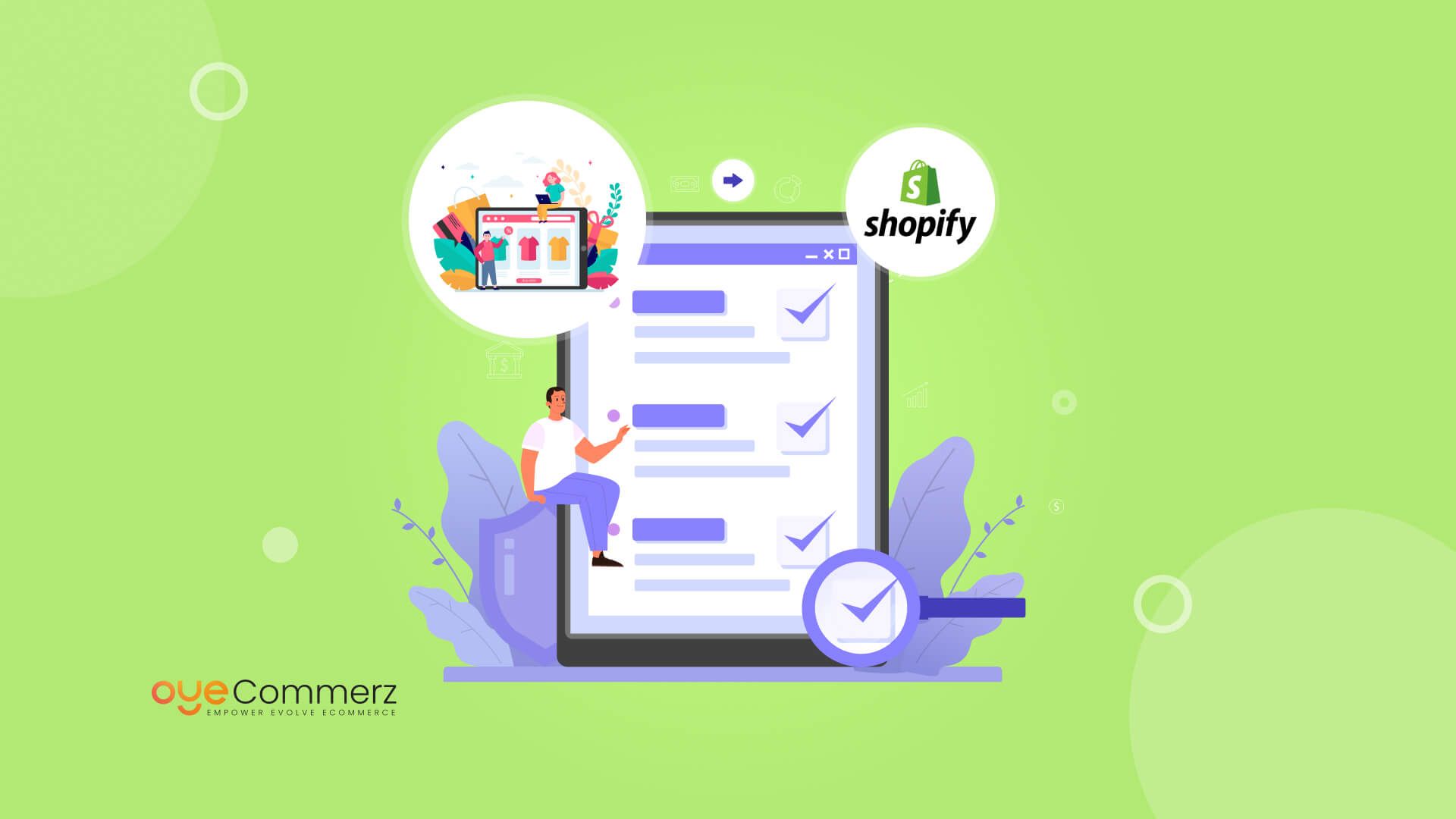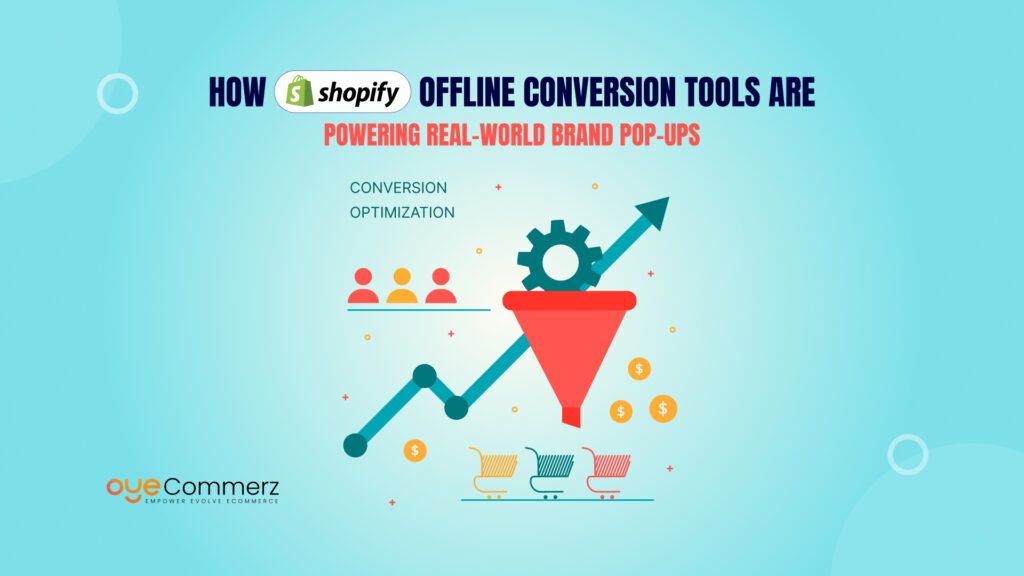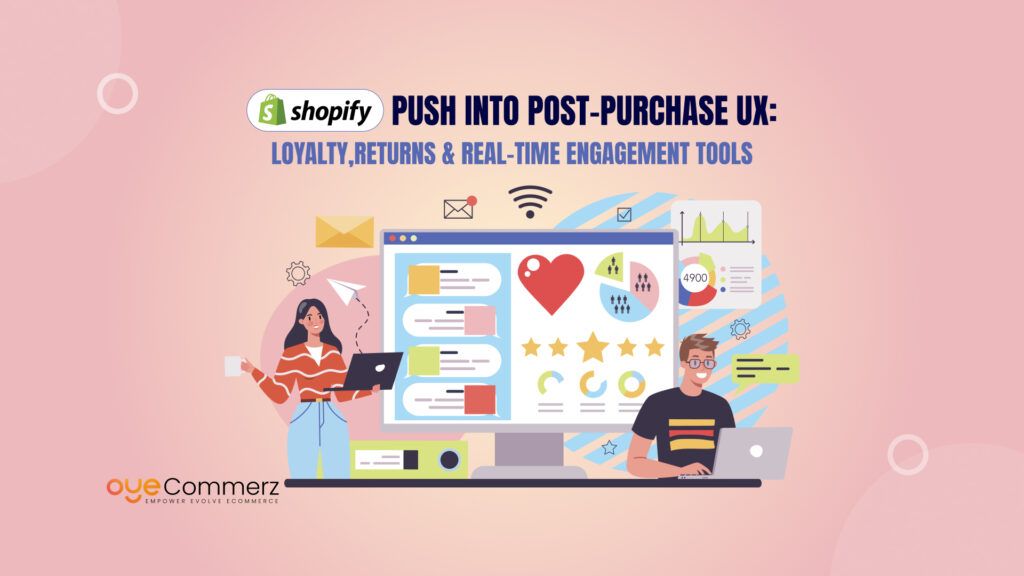Migrating Custom eCommerce Store to Shopify is a big decision and requires careful consideration. While custom platforms offer unique advantages, Shopify’s rich features, flexibility, and scalability make it a compelling alternative for businesses looking to streamline operations and expand. In this comprehensive guide, we’ll explore Benefits of Migrating from Custom Store to Shopify, offering in-depth insights into the platform’s benefits, functionality, and adaptability.
If you’re looking to scale seamlessly, reduce maintenance burdens, and gain advanced features with minimal technical work, read on to understand why migrating your store to Shopify could be the best next step for your business.
Table of Contents
ToggleWhat is Shopify and Its Ecosystem?
Shopify is a leading eCommerce platform, known for its simplicity, powerful features, and robust app ecosystem. Offering tools for design, development, and performance monitoring, Shopify enables businesses to manage their stores efficiently. The platform supports thousands of small to enterprise-level businesses with its user-friendly dashboard and expansive app store, which allows for a high degree of customization and feature integration without extensive coding.
When compared to custom platforms, Shopify’s advantage lies in its managed approach, where software updates, security, and technical upkeep are handled by Shopify itself. This removes the need for business owners to manage these aspects themselves, resulting in a platform that’s not only easier to maintain but also adaptable for growth.
Why Need Migration?
For many businesses, the need to move from a custom eCommerce platform arises from limitations in flexibility, scalability, or increased costs associated with custom development. A custom store may seem appealing initially, but over time, managing updates, security protocols, and scaling can become overwhelming. By migrating to Shopify, you can avoid these bottlenecks and tap into a platform with built-in support for growth.
Our Guide for Migrating Custom eCommerce Platform to Shopify explains how to overcome the challenges of a custom platform and leverage Shopify’s growth-ready features.Businesses that require minimal technical overhead but want to enjoy high performance, scalability, and a secure environment will benefit from moving to Shopify. Additionally, Shopify’s structured design reduces the technical debt often seen in custom platforms, making it easier for businesses to adapt quickly to changing eCommerce trends.
Key Benefits of Migrating From Custom Store to Shopify
Shopify offers several benefits that are hard to replicate with custom eCommerce platforms. Here are the primary reasons why Shopify is an attractive alternative:
- All-in-One Solution: Shopify is an integrated platform with all necessary eCommerce tools, including inventory management, analytics, SEO tools, and multi-channel sales.
- Robust App Ecosystem: The Shopify App Store hosts thousands of applications that extend functionality without requiring custom coding.
- SEO and Marketing Tools: Shopify includes built-in SEO capabilities and integrates well with third-party marketing platforms, helping you drive traffic and conversions.
- Advanced Analytics and Reporting: Shopify provides advanced analytics and reporting tools that enable you to make data-driven decisions with simplicity.
1. Technical Capabilities of Shopify
Migrating to Shopify is particularly appealing from a technical perspective due to its stable infrastructure and developer-friendly options. Here are some of the standout technical benefits:
- APIs and Integration: Shopify’s extensive API capabilities allow seamless integration with various systems, including CRMs, ERPs, and logistics solutions.
- Liquid Templating Language: Shopify’s Liquid template language enables flexible customization of themes without compromising security or performance.
- Development Tools and Themes: Developers can access Shopify’s CLI, GitHub integration, and theme management tools, making it easier to manage and customise stores efficiently.
- Mobile Optimization: Shopify themes are mobile-friendly by default, ensuring a smooth customer experience across all devices.
For businesses with in-house developers or working with agencies like Oyecommerz, Shopify’s technical framework allows for a high level of customization, giving you the flexibility of a custom solution with the ease of a managed platform.
2. Enhanced Security and Compliance Features
One of the critical advantages of migrating to Shopify is its robust security framework. Shopify takes care of core security needs, which means you don’t have to constantly worry about patches, updates, or compliance issues.
- PCI Compliance: Shopify is PCI-DSS compliant, ensuring that all customer’s confidential data is kept private.
- SSL Certificates: Shopify provides free SSL certificates, giving your customers a secure browsing experience and boosting SEO.
- Data Encryption and Fraud Detection: Shopify uses advanced encryption methods and provides fraud detection tools to keep sensitive data safe and help prevent suspicious transactions.
With Shopify handling these security features, you can focus more on your business growth rather than technical upkeep, ensuring peace of mind for both you and your customers.
3. Cost Efficiency and Reduced Maintenance
One of the common reasons businesses prefer Shopify is the ability for cost savings. With a custom platform, every new feature, bug fix, or security patch requires development resources. Shopify eliminates many of these costs by handling updates and maintenance internally.
- Predictable Costs: Shopify offers clear pricing plans, making it easy to budget for without unexpected expenses.
- Less Dependency on Developers: Since Shopify provides a range of built-in tools and plugins, businesses are less reliant on developers for regular maintenance.
- Automatic Updates and Maintenance: Shopify handles system updates, security patches, and feature upgrades, so your store is always up-to-date without the need for manual intervention.
These cost savings can be significant, especially for small and medium-sized businesses that don’t have large development teams.
4. Scalability and Customization Options
Shopify is an incredibly scalable platform, supporting everything from small boutiques to enterprise-level businesses. Its infrastructure can handle high traffic volumes, which means it’s well-suited to businesses expecting rapid growth.
- Multi-Channel Sales: Shopify allows you to sell across multiple channels, including social media platforms, Amazon, and Google Shopping.
- Shopify Plus for Enterprises: For larger businesses, Shopify Plus provides advanced features, such as custom checkouts, dedicated support, and deeper integration options.
- Extensive Customization: Shopify’s Liquid templating language, apps, and APIs enable extensive customization, allowing you to tailor your store’s functionality to meet unique business requirements.
This scalability ensures that Shopify grows with your business, providing you with the flexibility to adapt as your needs change.
5. SEO and Marketing Advantages
Shopify is equipped with several tools that help boost SEO and marketing efforts, making it easier for your store to attract and retain customers.
- SEO-Friendly URLs and Metadata: Shopify allows you to optimise URLs, titles, and meta descriptions, ensuring that your store is indexed correctly by search engines.
- Integrated Blogging Platform: Shopify includes a built-in blogging platform, which supports content marketing strategies that drive organic traffic.
- Social Media and Email Marketing Integrations: Shopify supports integration with major social media platforms, email marketing tools, and ad networks, enabling seamless marketing campaigns.
Shopify’s SEO and marketing features are a valuable asset, making it easier for businesses to establish a strong online presence and drive more qualified traffic.
6. Elevated Customer Experience and Mobile Optimization
Shopify understands that a superior customer experience is crucial for eCommerce success. The platform offers various features that improve customer satisfaction and conversions:
- User-Friendly Design: Shopify offers a range of professional, responsive themes that ensure an intuitive browsing experience on all devices.
- Accelerated Mobile Pages (AMP): Shopify supports AMP, improving load speeds on mobile devices and enhancing SEO.
- Streamlined Checkout Process: Shopify’s checkout process is designed to minimise friction, which helps reduce cart abandonment and boost conversions.
Migrating to Shopify means providing a seamless, optimised shopping experience for your customers, encouraging higher engagement and loyalty.
Smooth Migration Process with Oyecommerz
Migrating to a new platform can be challenging, but with the right partner, it can be a seamless experience. Oyecommerz specialises in Shopify migrations, offering end-to-end support to make the transition as smooth as possible.
- Comprehensive Migration Plan: Oyecommerz handles everything from data migration to SEO preservation, ensuring your store maintains its search engine rankings.
- Tailored Solutions for Unique Business Needs: We work closely with you to customise Shopify to meet your specific requirements, ensuring the platform is optimised for your business.
- Ongoing Support and Maintenance: After the migration, Oyecommerz provides continued support to ensure that your Shopify store operates smoothly and efficiently.
Are you prepared to discover the advantages that Shopify can bring to your business? Contact Oyecommerz today for a consultation and see how we can help with a seamless migration experience.
Contact to Migrate your Site to Shopify Now
Embrace Shopify’s Advantages for Future Growth
Switching from a custom platform to Shopify is a powerful step toward scaling efficiently, streamlining operations, and enhancing the customer experience. With Shopify, you benefit from a fully managed ecosystem designed for flexibility, ease of use, and security, making it easier to focus on business growth rather than technical maintenance. Key features like a robust app ecosystem, SEO tools, and seamless multi-channel sales ensure your store stays competitive and adaptable as trends evolve.
By partnering with experts like Oyecommerz, your migration process can be smooth and strategic, preserving your SEO, customizing functionality, and providing ongoing support to maximize Shopify’s potential for your business. Ready to unlock Shopify’s full capabilities? Transitioning to this platform could be the most impactful decision for your e-commerce future.
Frequently Asked Questions
Yes, Shopify has solutions aligned for businesses of all sizes. Shopify Plus, the platform’s enterprise solution, offers advanced features like dedicated support, custom checkout, and automation tools specifically designed to support high-volume merchants.
Shopify is a fully managed platform that provides built-in security measures, such as PCI compliance, SSL certificates, and fraud detection tools. These features help protect both your business and your customers, often reducing security management responsibilities compared to custom platforms.
Migrating to Shopify offers a range of benefits, such as reduced maintenance costs, advanced security, a seamless user experience, and easy scalability. Shopify also provides a wide range of apps and integrations that can help you enhance your store’s functionality and adapt as your business grows.
Migrating from a custom eCommerce platform to Shopify can be beneficial, but there are some challenges that businesses often encounter. One major hurdle is ensuring data compatibility and successful data transfer. Custom platforms frequently use unique data formats for customer information, product details, and order histories, which may not directly align with Shopify’s structure.
Shopify is built to handle significant traffic and provides automatic scaling to support high-demand events like Black Friday. Shopify Plus, in particular, offers enhanced performance and support for enterprise-level traffic needs.
With Shopify, each store operates independently, so you’ll need separate accounts for each one. Shopify Plus, however, allows you to manage multiple stores under one umbrella with additional features for managing a network of stores.




